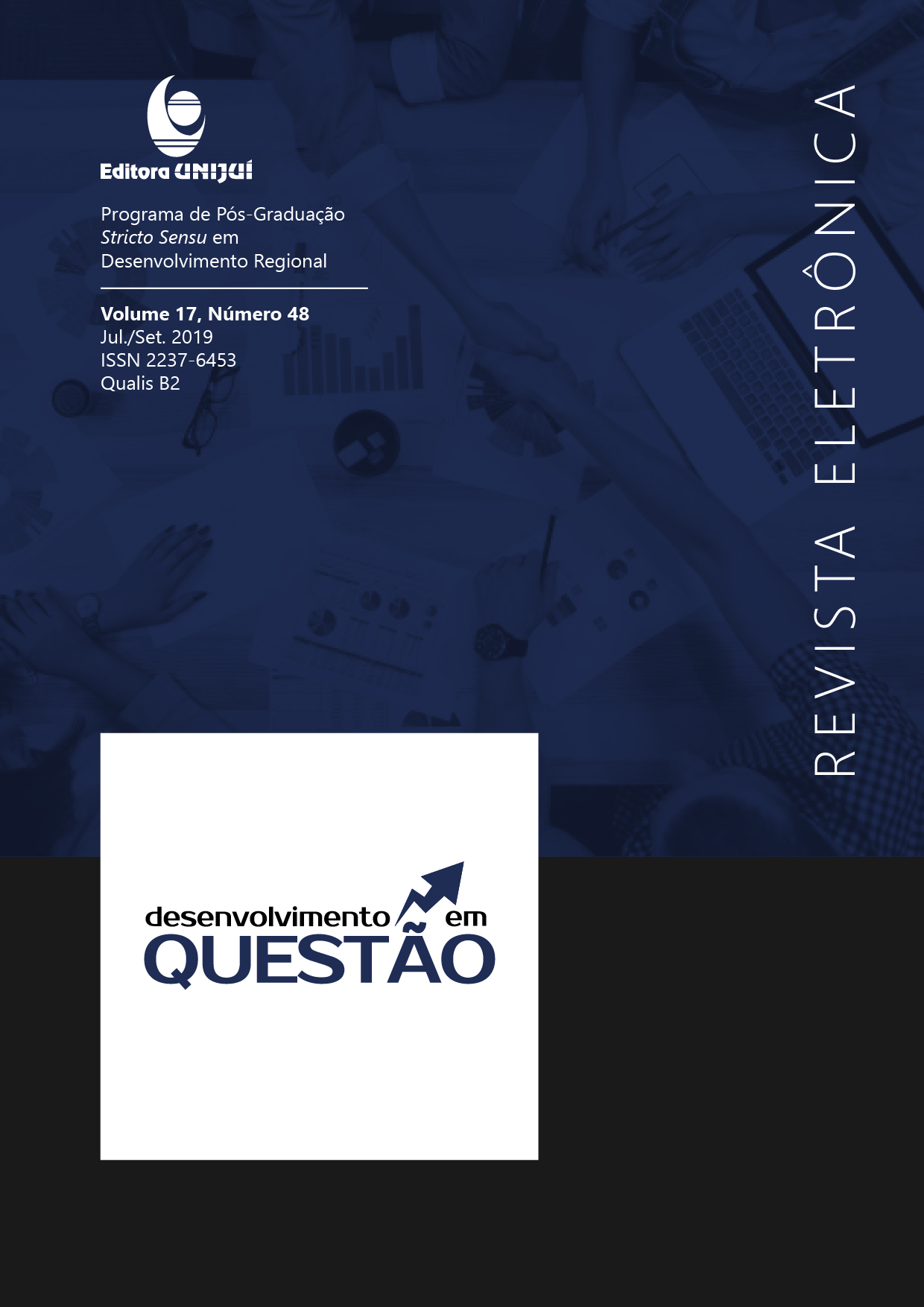Possibilidades Analíticas sobre o Desenvolvimento Rural a partir da Nova Economia Institucional: um estudo de caso na vitivinicultura do Rio Grande do Sul
DOI:
https://doi.org/10.21527/2237-6453.2019.48.334-352Palavras-chave:
Nova Economia Institucional; Desenvolvimento Rural; Proposta metodológicaResumo
O presente artigo pretende se apresentar como um ensaio teórico sobre o emprego dos principais conceitos da Nova Economia Institucional (NEI) para a compreensão do fenômeno do desenvolvimento rural, centrando a análise nas propostas de seu autor principal, Douglass North. Após uma ampla revisão, apresenta-se um modelo analítico que contemple as principais transformações ocorridas, nos ambientes organizacionais, tecnológicos, competitivos e institucionais, no âmbito da vitivinicultura da Serra gaúcha. A partir de tais análises, um conceito de desenvolvimento rural sob a ótica institucional é proposto. O conceito busca entender o desenvolvimento rural de forma mais ampla do que apenas um olhar econômico sobre a produção em ambientes rurais. Considera-se que a proposta aqui empreendida poderá qualificar as análises empíricas, alcançando dimensões ainda pouco exploradas nos estudos do desenvolvimento rural, tais como a sua historicidade e suas configurações sociais e institucionais, que condicionam as intervenções dos atores no território, produzindo suas trajetórias de desenvolvimento.
Downloads
Publicado
Como Citar
Edição
Seção
Licença
Ao publicar na Revista Desenvolvimento em Questão, os autores concordam com os seguintes termos:
Os trabalhos seguem a licença Creative Commons Atribuição 4.0 Internacional (CC BY 4.0), que permite:
Compartilhar — copiar e redistribuir o material em qualquer meio ou formato;
Adaptar — remixar, transformar e criar a partir do material para qualquer fim, inclusive comercial.
Essas permissões são irrevogáveis, desde que respeitados os seguintes termos:
Atribuição — Atribuição — os autores devem ser devidamente creditados, com link para a licença e indicação de eventuais alterações realizadas.
Sem restrições adicionais — não podem ser aplicadas condições legais ou tecnológicas que restrinjam o uso permitido pela licença.
Avisos:
A licença não se aplica a elementos em domínio público ou cobertos por exceções legais.
A licença não garante todos os direitos necessários para usos específicos (ex.: direitos de imagem, privacidade ou morais).
A revista não se responsabiliza pelas opiniões expressas nos artigos, que são de exclusiva responsabilidade dos autores. O Editor, com o apoio do Comitê Editorial, reserva-se o direito de sugerir ou solicitar modificações quando necessário.
Somente serão aceitos artigos científicos originais, com resultados de pesquisas de interesse que não tenham sido publicados nem submetidos simultaneamente a outro periódico com o mesmo objetivo.
A menção a marcas comerciais ou produtos específicos destina-se apenas à identificação, sem qualquer vínculo promocional por parte dos autores ou da revista.
Contrato de Licença (para artigos publicados a partir de 2025): Os autores mantêm os direitos autorais sobre seu artigo, e concedem a Revista Desenvolvimento em Questão o direito de primeira publicação.











